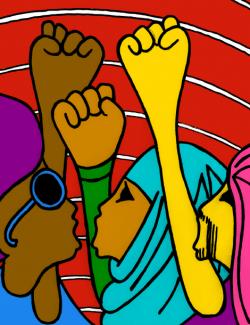The Transitional Justice category examines different case studies showcasing the impact of addressing injustice on the degree to which women’s rights were achieved in various democratization processes. Women have often been referred to as “weapons of war” in all kinds of conflicts across and within borders, in different cultures, times and regions. Mechanisms used to bring those crimes committed before, during, and after conflicts and wars to justice are critical for laying the foundation for the new democracies.
Transitional Justice in the Arab Countries: Opportunities and Challenges
This resource highlights the five main factors that affect how we can consider transitional justice issues in the Arab countries that have undergone transition. These five factors include the manner in which the transitions took place, the role of social media, the key role of satellite television channels in promoting or even directing the protest, the role played by the military in the region, and finally timing of the events. For the United Nations there are five components of transitional justice: prosecution, truth, reparations, institutional reforms, and national consultations on transitional justice processes. These components are firmly rooted in international law. The rest of the paper briefly reflects on how these five components of transitional justice have been implemented in these countries of the region thus far.
- Publication: 2012
- Author(s): Rishmawi, Mona
- Country/Region: Middle East and North Africa (MENA)
- Theme: Transitional Justice
- Keywords: institutional reforms, media, military, national consultation, prosecution, reparations, Transitional Justice
- Languages: English
- Source: Proceedings of the Annual Meeting (American Society of International Law), vol 106 March 2012, pp. 497-501
